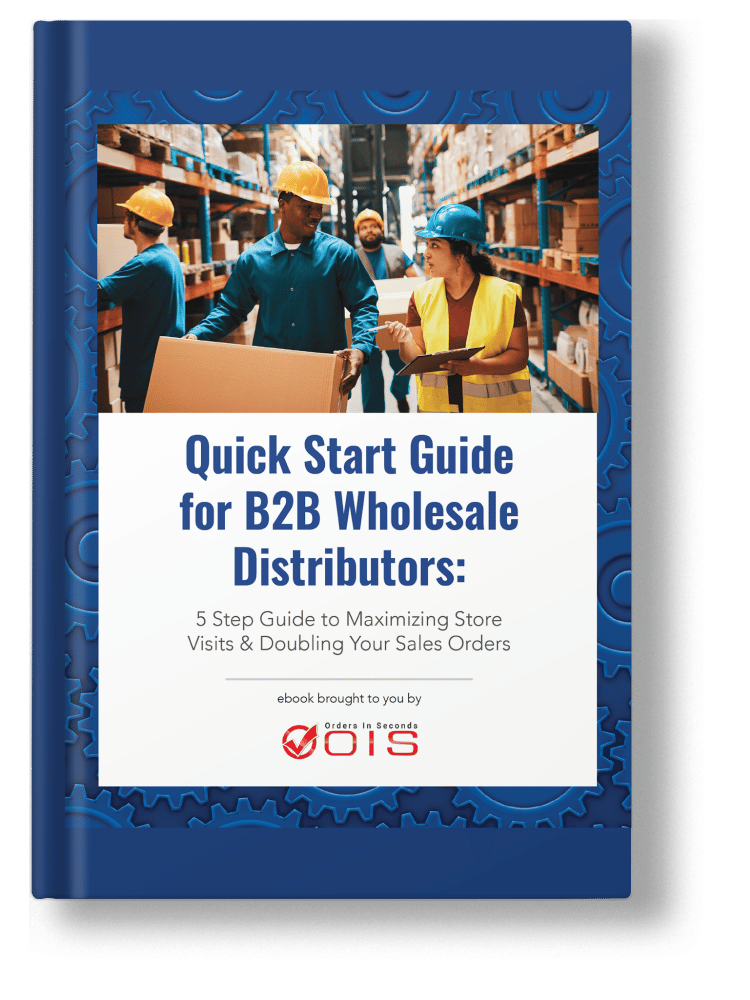If you’re leading and managing a B2B sales team, you know that productivity is critical to your success. The more productive your team is, the more deals they can close, and the more revenue your company can generate. However, it can be challenging to figure out how to boost productivity, especially in a highly competitive marketplace.
In this blog post, we’ll share 15 tips to help you improve your B2B sales team’s productivity. These tips cover a wide range of areas, from sales training and development to technology and sales force automation. So, let’s dive in and explore these tips in more detail.
Factors to Consider When Boosting Your B2B Sales Team’s Performance
Boosting the productivity of your B2B sales team requires careful consideration of several factors. It’s important to understand the strengths and weaknesses of your team to tailor your strategies to their specific needs. Additionally, considering the unique characteristics of your industry and target audience, researching your competitors and aligning with your company’s goals and values, can all contribute to the success of your productivity-boosting efforts.
Additionally, it’s crucial to keep your budget in mind, as some strategies may require a significant financial investment. Additionally, focusing on team motivation and engagement levels and ensuring that your strategies align with your company’s culture can lead to a more motivated and productive team.
15 Effective Strategies for Boosting Your B2B Sales Team’s Productivity
1) Develop a Strong Sales Culture
This is essential to building high-performing sales representatives. A strong sales culture involves creating an environment where everyone on the team is committed to achieving success and working collaboratively towards a common goal. This includes providing a clear vision, values, and goals for the team, as well as fostering a sense of ownership and accountability among team members.
To develop a strong sales culture, consider implementing regular team-building activities, providing opportunities for professional development and growth, and celebrating successes as a team. You can also encourage team members to share their best practices and success stories to help everyone learn and grow together.
In addition to providing the right training and recognizing team achievements, offering unique perks can elevate morale and motivate sales representatives. Thoughtful gifting, such as creative corporate awards that celebrate milestones or exceptional performance, shows appreciation and strengthens your team culture. These unique rewards can be a strategic part of your employee recognition program, fostering loyalty while making memorable impressions for special occasions.
2) Focus On The Right Sales Goals
This is critical to helping your sales team achieve success and includes defining goals for the team and individual team members, as well as providing guidance on how to attain these goals. It’s also important to define clear performance metrics and expectations for each team member, so that everyone knows what is expected of them and how they will be measured.
When doing this, it’s important to ensure that these goals are achievable and aligned with your overall business objectives. This means setting realistic targets that take into account market conditions, product availability, and other factors that may impact sales performance.
3) Pay Attention To Lead Quality
Focusing on lead quality is critical to maximizing the productivity of your sales professionals. This involves prioritizing high-quality leads over low-quality ones, and ensuring that your team is spending their time and effort on the leads that are most likely to convert into sales.
To focus on lead quality, consider implementing lead scoring or qualification processes to help your team identify the most promising leads. You can also provide training and support to help your team to better understand your target audience and the types of leads that are most likely to convert.
4) Foster a Culture Of Accountability
One of the keys to creating a successful sales team is to foster a culture of accountability. This means setting clear expectations and holding team members responsible for meeting their goals. To do this effectively, it’s important to establish measurable metrics for success, such as monthly sales quotas or number of qualified leads generated. By tracking progress towards these metrics and holding team members accountable for meeting them, you can create a sense of urgency and motivation that drives productivity.
5) Optimize Your Sales Processes
Another key to improving sales team productivity is to optimize your sales processes. This means identifying areas where you can streamline workflows, reduce inefficiencies, and automate repetitive tasks. By doing this, you can free up more time for your sales representatives to focus on high-value activities, such as building relationships with prospects and closing deals.
Optimizing your sales processes might involve automating data entry tasks, simplifying your CRM system, or using tools such as mobile sales apps like OIS Pro, to automate order-taking and processing workflows. This can help your sales team save time, improve accuracy and reduce the risk of errors.
6) Celebrate Successes and Provide Incentives
Celebrating successes is an important part of building a strong sales culture and keeping your team motivated. This can involve recognizing individual and team accomplishments, such as hitting a sales target or closing a major deal.
To do this effectively, it’s important to be specific about what you’re celebrating and to recognize the efforts of everyone involved. This might involve holding a team meeting to acknowledge successes and share best practices, or offering individual recognition through bonuses or other rewards. By celebrating successes, you can build a positive and supportive work environment that inspires your team to strive for even greater achievements.
7) Simplify Administrative Tasks
One of the most common challenges facing sales teams is the burden of administrative tasks. From updating customer information to processing sales orders, these tasks can take up a significant amount of time and energy that could be better spent on revenue-generating activities.
To simplify administrative tasks, it’s important to identify areas where you can automate or delegate tasks. This might involve using B2B software tools to automate data entry or order processing, or outsourcing administrative tasks to a virtual assistant or other support staff.
8) Improve Communication
Effective communication is critical to the success of any sales team. This means keeping team members informed about important developments, sharing best practices and insights, and creating an environment where feedback and collaboration are encouraged.
To improve this, it’s important to establish regular communication channels, such as team meetings, status updates, or instant messaging tools. You should also encourage team members to share insights and best practices, and to provide feedback on their experiences working with customers.
9) Embrace Automation
Automation can be a game-changer for sales teams, by helping to streamline workflows and reduce manual tasks. This can include automating lead generation, lead nurturing, and follow-up activities, as well as automating administrative tasks such as data entry and reporting.
To embrace automation effectively, it’s important to identify areas where automation can make the biggest impact, and to invest in the right tools and software to support your team’s needs. This might involve using customer relationship management (CRM) software to automate lead management and sales processes, mobile invoicing for sales reps, DSD route software, or using marketing automation tools to help generate and nurture leads.
10) Utilize Technology
Technology can be a powerful enabler for sales teams, helping to improve communication, streamline workflows, and increase efficiency. This can include tools such as video conferencing software for remote meetings, mobile apps for on-the-go sales activities such as DSD mobile invoicing and even virtual reality tools for immersive product demonstrations.
It’s important to identify the right tools and software for your team’s needs, and to provide training and support to ensure that everyone is able to use them effectively. You should also keep up-to-date with the latest technological developments and trends to ensure that your sales team is always working with the best tools and technologies available.
11) Empower Your Team With Data
Data is a powerful tool for sales teams, providing insights into customer behavior, sales performance, and market trends. By analyzing data, you can identify areas for improvement and make data-driven decisions that help you optimize your B2B sales strategy.
To empower your team with data, it’s important to invest in the right tools and software to collect and analyze data, and to provide regular training and support to ensure that everyone knows how to use it effectively. You should also encourage a culture of data-driven decision-making, where team members feel comfortable using data to inform their actions and strategies.
12) Encourage a Healthy Work-Life Balance
Encouraging a healthy work-life balance is essential for keeping your sales team motivated, engaged, and productive. This means promoting habits and practices that support physical and mental health, such as regular exercise, stress management, and work-life boundaries.
To encourage a healthy work-life balance, it’s important to lead by example, modeling healthy habits and encouraging team members to prioritize self-care. You should also provide opportunities for team members to disconnect from work, such as flexible schedules or time off, and support initiatives that promote physical and mental wellness, such as wellness programs or employee assistance programs.
13) Regularly Evaluate and Adjust Your Approach
Regularly evaluating and adjusting your sales approach is essential for staying agile and responsive in a rapidly changing market. This means regularly assessing your team’s performance, identifying areas for improvement, and adapting your strategy as needed.
It’s important to set clear metrics and goals, track progress against those goals, and regularly assess the effectiveness of your sales processes and strategies. You should also seek feedback from your team members and customers, and use that feedback to inform your decision-making.
14) Find Optimal Sales Routes
Finding optimal sales routes can be effective in boosting productivity because it allows sales reps to maximize their time and efficiency while on the road. By using route optimization software like Badger Maps, sales reps can map out the most efficient routes between appointments, avoid traffic and other obstacles, and optimize their schedule to fit in as many appointments as possible.
This can save sales reps time and reduce the amount of downtime between appointments, which can lead to increased productivity and more deals closed. Additionally, by using route optimization tools, sales reps can spend more time with customers and less time on the road, leading to better customer relationships.
15) Proper Training and Coaching
By providing your team with the knowledge and skills they need to succeed, you can help them work more efficiently, close more deals, and ultimately generate more revenue for your company.
However, it’s important to note that not all training and coaching programs are created equal. To be truly effective, the education you provide to your team must be of actual worth for them. This means taking the time to assess your team’s individual needs and tailoring your training and coaching programs to address their specific strengths and weaknesses.
In Conclusion
Boosting your B2B sales team’s productivity is essential for achieving success in today’s competitive market. By considering factors like your team’s strengths and weaknesses, your industry and target audience, and your sales process, you can develop effective strategies to improve productivity.
To help you in this process, consider using a platform like Orders In Seconds for B2B ordering, which streamlines sales processes and provides valuable data analytics and automation tools to boost productivity and efficiency. With features like taking orders, near real-time inventory tracking, and customizable reporting. Orders In Seconds can help your sales team achieve their goals and exceed expectations. Schedule a free demo today!






